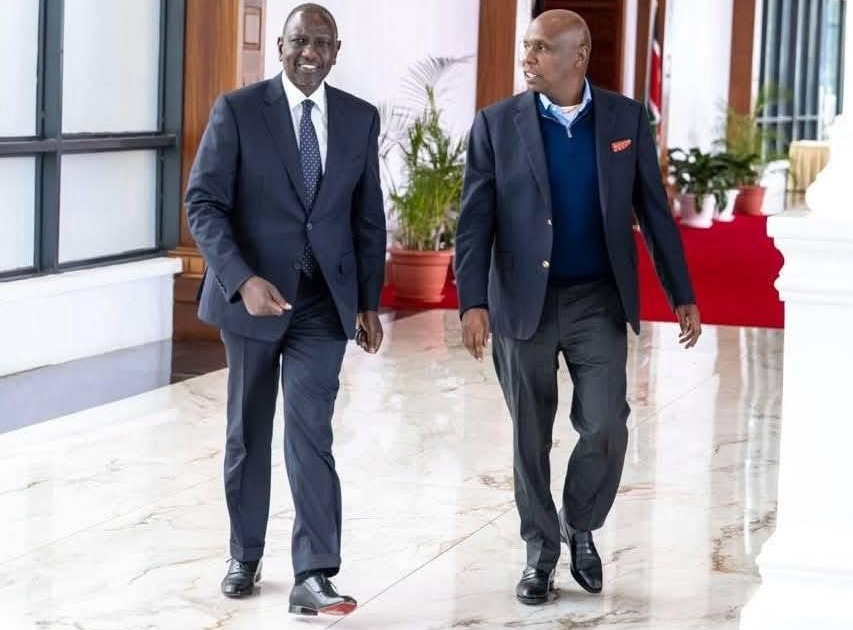At dawn, in any market from Marigiti, Nginyang, Kalundu to Kondele, traders set up fresh Sukuma wiki, domestic animals, and mangoes before the headlines surface. In that quiet order lies a national truth. Unity only matters when it supports families. The recent images of President William Ruto with Gideon Moi at the State House and later at Kabarak have stirred public chatter about possible deals. Such images remind us that unity, if based on results, can change a nation’s mood and markets overnight. The real question is whether this unity will improve daily life for Kenyans.
Our Constitution already guides us. It calls for a national executive that represents regional and ethnic diversity, and it limits the Cabinet to between fourteen and twenty-two secretaries to keep leadership efficient and accountable. Inclusion with discipline, not endless seat expansion, is the goal. This serves as the initial guardrail for any inclusive government worthy of its name.
South Africa provides a nearby example. After the ANC lost its majority in 2024, parties signed a public Statement of Intent and formed a Government of National Unity that included rivals. This move calmed markets and gave more voices a voice, even though coalition tensions later arose over consultations on key bills. Kenya can adopt this transparency approach, with public commitments that last beyond politics. Publish the agreement, keep the Cabinet transparent, and resolve disputes through rules rather than rumors.
China’s experience highlights a second point. Its consultative system works alongside a relentless focus on livelihoods. Over four decades, consistent local accountability has helped lift about 800 million people out of extreme poverty, according to the World Bank. Kenya can’t import another nation’s politics, but it can adopt that same insistence that unity is only proven when households improve.
From the Gulf comes a third insight: unity there is gauged at the service counter. Dubai monitors customer happiness across government services and posts the results, consistently scoring above ninety percent. Saudi Arabia’s reforms have brought more women into the workforce, expanding productivity and strengthening household resilience. When citizens feel valued and included, trust increases, and investment accelerates.
Here’s Kenya’s dividend if unity leads to action. Three out of four Kenyans are under thirty-five, according to the Kenya National Bureau of Statistics. Counties are scheduled to receive about KSh 417.4 billion in their fair share this fiscal year, as recommended by the Commission on Revenue Allocation. That’s roughly KSh 8 billion a week flowing to clinics, water points, and markets if managed efficiently. If even ten percent were set aside for youth and women enterprises with civic oversight, more than KSh 40 billion could fund real ventures instead of rumors. Numbers only matter when they translate into dignity.
So how do we prevent the feeling of power sharing at the expense of the people? First, publish a Kenyan Statement of Intent that outlines three non-negotiable goals for the next twenty-four months: lower food prices through county irrigation and storage, increase primary healthcare uptime, and create more youth jobs through credit paid upon reaching delivery milestones. Second, require every Cabinet Secretary and Principal Secretary to sign a fresh, practical, and truly people-centered public performance contract with quarterly dashboards audited by Parliament and reviewed by an independent delivery unit in the Presidency. Third, ensure every appointment reflects regional balance and gender fairness within the constitutional size limits. When every ministry reports back to citizens and every county to its people, political unity shifts from spectacle to genuine trust.
Let’s also clarify about rumors. Meetings always spark speculation about roles. The solution is transparency. Share the agreement, share the scorecards, share the financial flows. When actions are visible, gossip diminishes, and politics appears more like service again.
Unity is not an appointment letter; it is a schedule you can check at your local clinic and market. Unity that sustains families endures, but vanity politics fade quickly. Think green, act green!


